Warm and cozy Full Moon Festival in the countryside of Nghe An
For the Nghe people, the Full Moon of the seventh lunar month is an important and sacred holiday: "The whole year has the Full Moon of the seventh lunar month, the whole year has the Full Moon of the first lunar month". Every Full Moon occasion, people in the localities in the province eagerly prepare to welcome the Full Moon, worship the Full Moon, and together turn to their roots, ancestors, and clan with gratitude and respect.
The whole year is full moon in July
On the morning of the full moon day, Mr. Phan Cong Phuc (20 years old) in Nam Thanh commune (Yen Thanh) and his mother woke up early to cook chicken, sticky rice, and prepare two trays of sticky rice and chicken, one to worship the ancestors, and one to take to the church.
Mr. Phuc said he is a second-year student at the University of Commerce (Hanoi). On the night of the 13th of the 7th lunar month, he hurriedly took a bus home with excitement to celebrate the 15th of the 7th lunar month with his family.
According to Mr. Phuc, he returned to the Full Moon Festival to represent his family members in worshiping their grandparents, ancestors and father, both as a responsibility and to show respect and gratitude to the deceased.
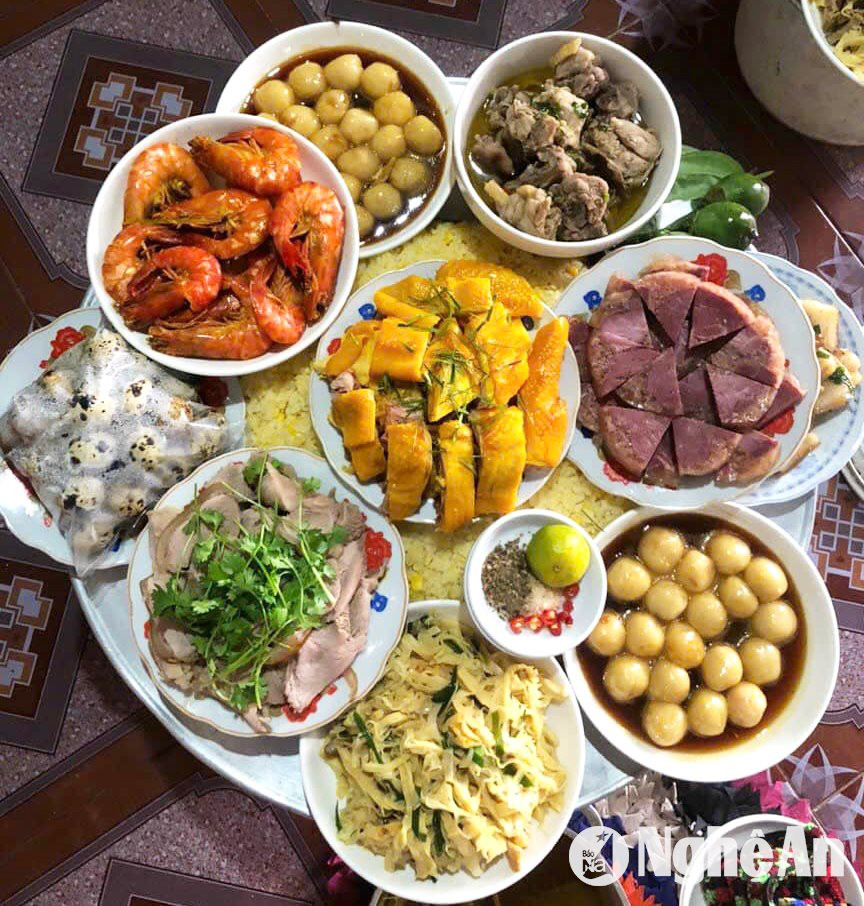
In his Phan family temple, from the 13th day of the lunar calendar, descendants have gathered to clean the sacrificial objects, decorate the altar, and items in the communal house. On the night of the 14th and the 15th, descendants in the family will continuously play the sacrificial drums.
On the 14th night, relatives will prepare sticky rice and chicken for the night offering. On the morning of the 15th, after finishing the ancestral worship at the church, he will return home to worship his ancestors.
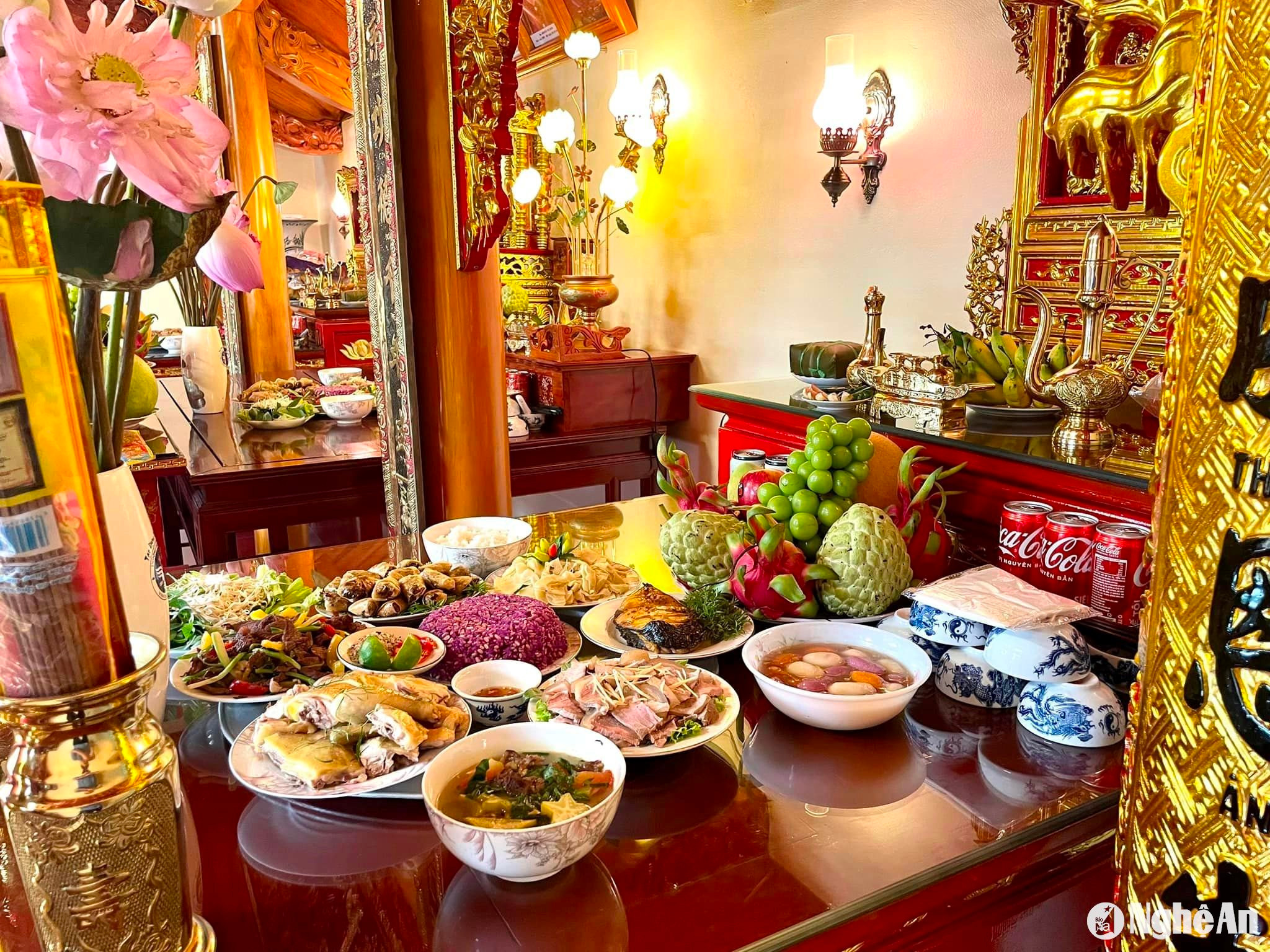
“I feel very happy because I have arranged time to go home to celebrate the 15th day of the 7th lunar month, to show my respect to my ancestors and father,” said Mr. Phuc.
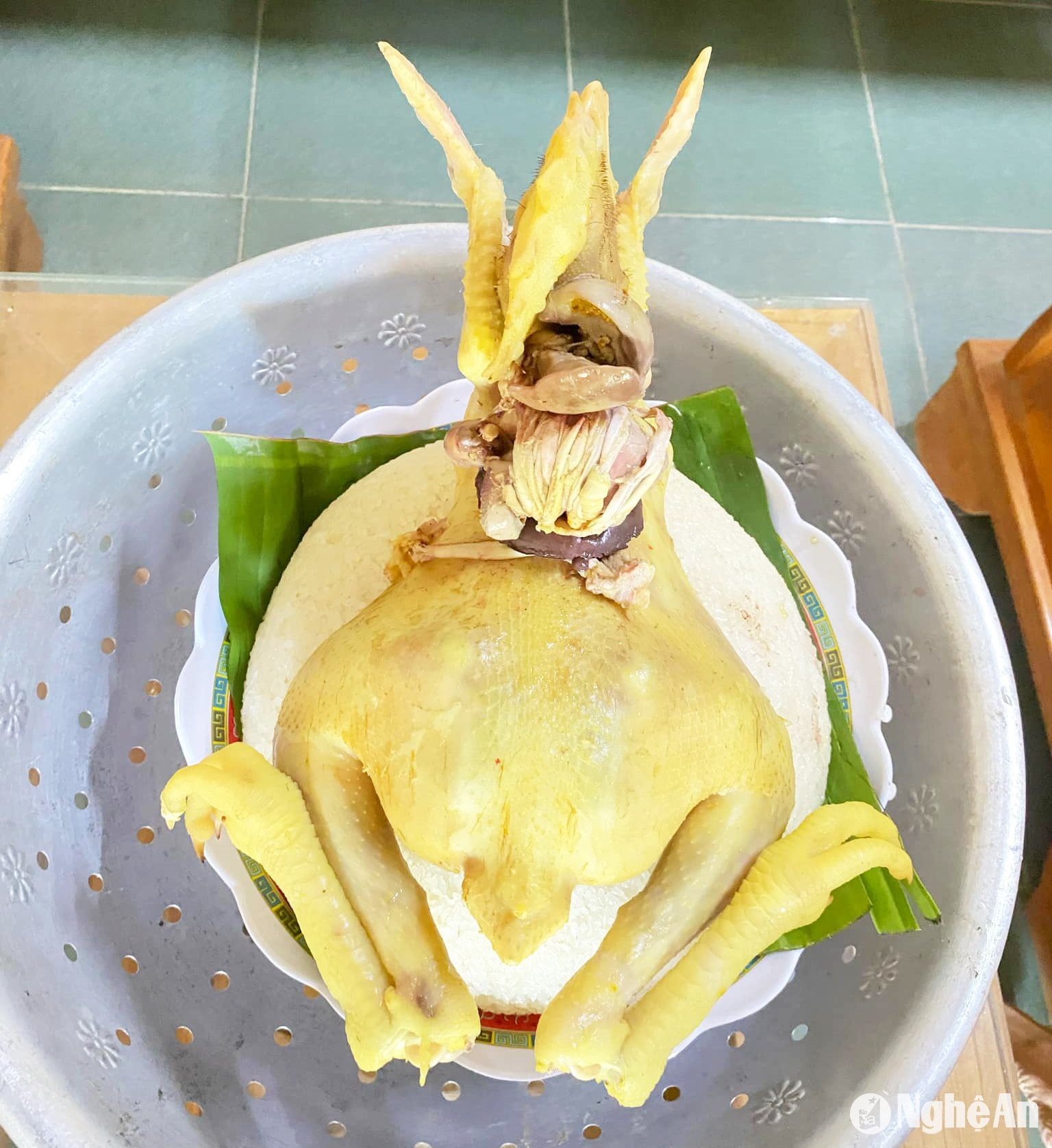
For the people of the coastal village of Nghi Thiet commune (Nghi Loc), a rural area with a rich history and culture, still preserving many ancient relics and traditional customs, they celebrate the 15th of the seventh lunar month in the joy of celebrating the 70th anniversary of the commune's founding.
Mr. Dau Van Thang - Secretary of Nghi Thiet Commune Youth Union shared that to celebrate the Full Moon Festival in July, from the 13th, according to custom, all clans mobilize their children and grandchildren to go to the ancestral temple to clean, wipe, and sanitize the grounds, hang the national flag and festival flags. Starting from the afternoon of the 14th, all clan temples will simultaneously burn incense.
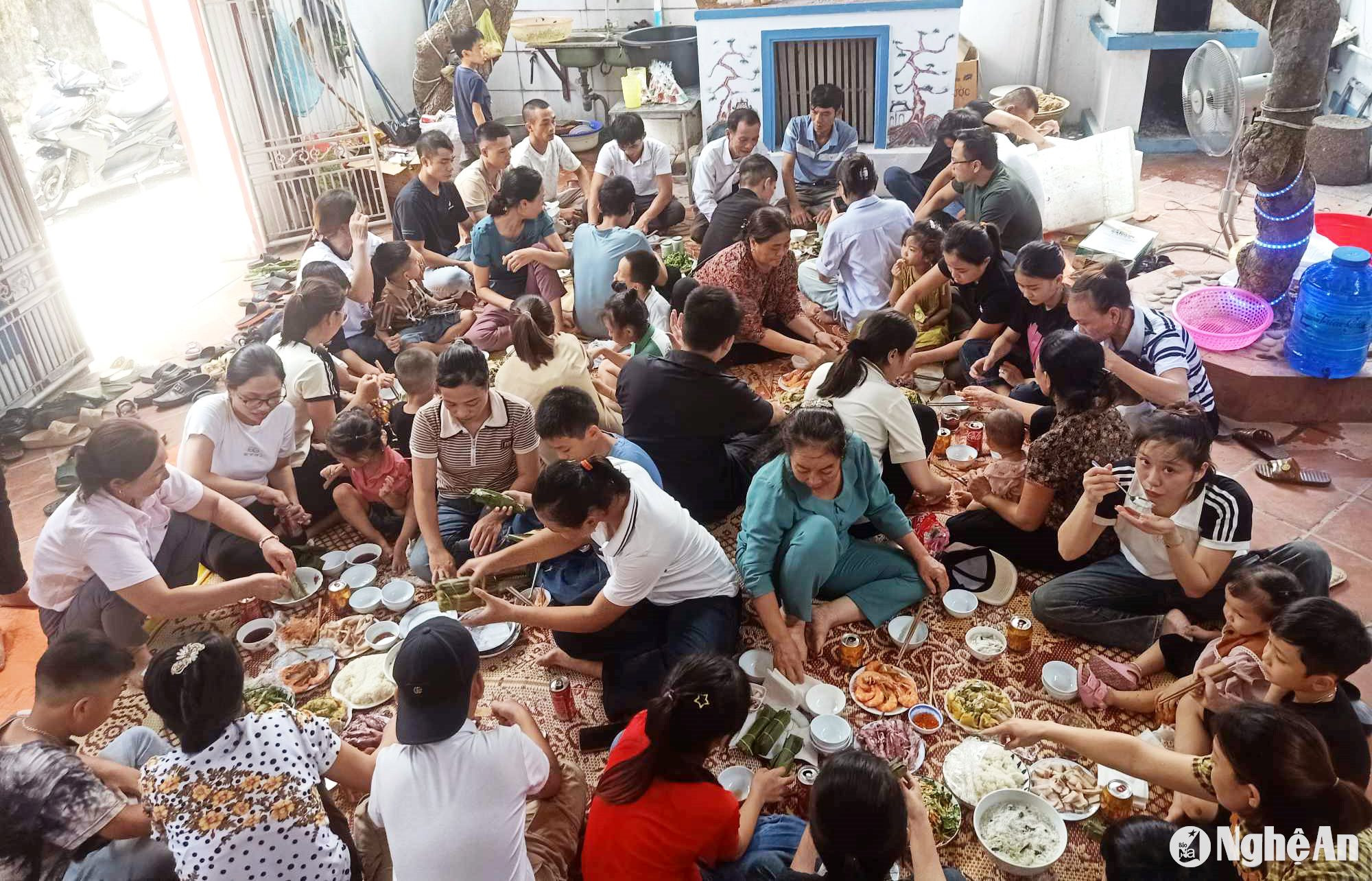
In the atmosphere of celebrating the 70th anniversary of Nghi Thiet commune's establishment, the locality has deployed sports, cultural and artistic activities, mobilized people to clean up village roads and alleys, hung national flags in front of houses, along the roads... making the Full Moon Day more exciting and cozy.
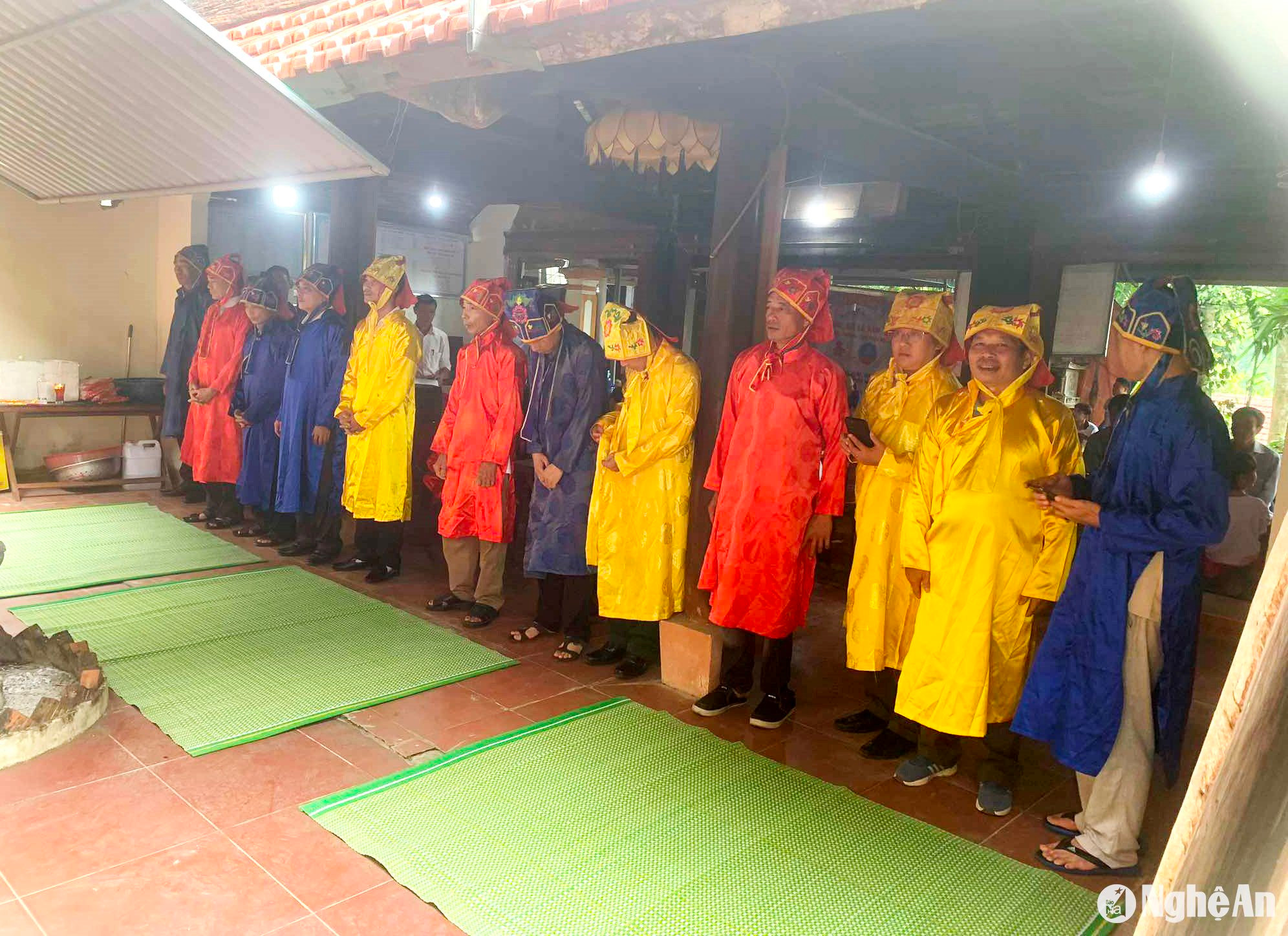
For people in Thanh Chuong district, the atmosphere of preparing to welcome the Full Moon and worshiping the Full Moon of the seventh lunar month is as exciting as "Tet".
The Tran Dinh family is a large family in Dong Van commune with two main ancestral temples: the elder ancestral temple in Luan Phuong hamlet with Mr. Tran Dinh Dai as the patriarch; the younger ancestral temple in Tien Quanh hamlet with Mr. Tran Dinh Cung as the patriarch. From these two main ancestral temples, branches developed. On the 15th of the seventh lunar month, the Tran Dinh family ancestral temples all hold big full moon celebrations, and descendants from all over the country return to their hometowns to celebrate the full moon. From the 12th, the patriarchs announced that their descendants would gather at the ancestral temple to clean, redecorate the communal house, and visit graves...
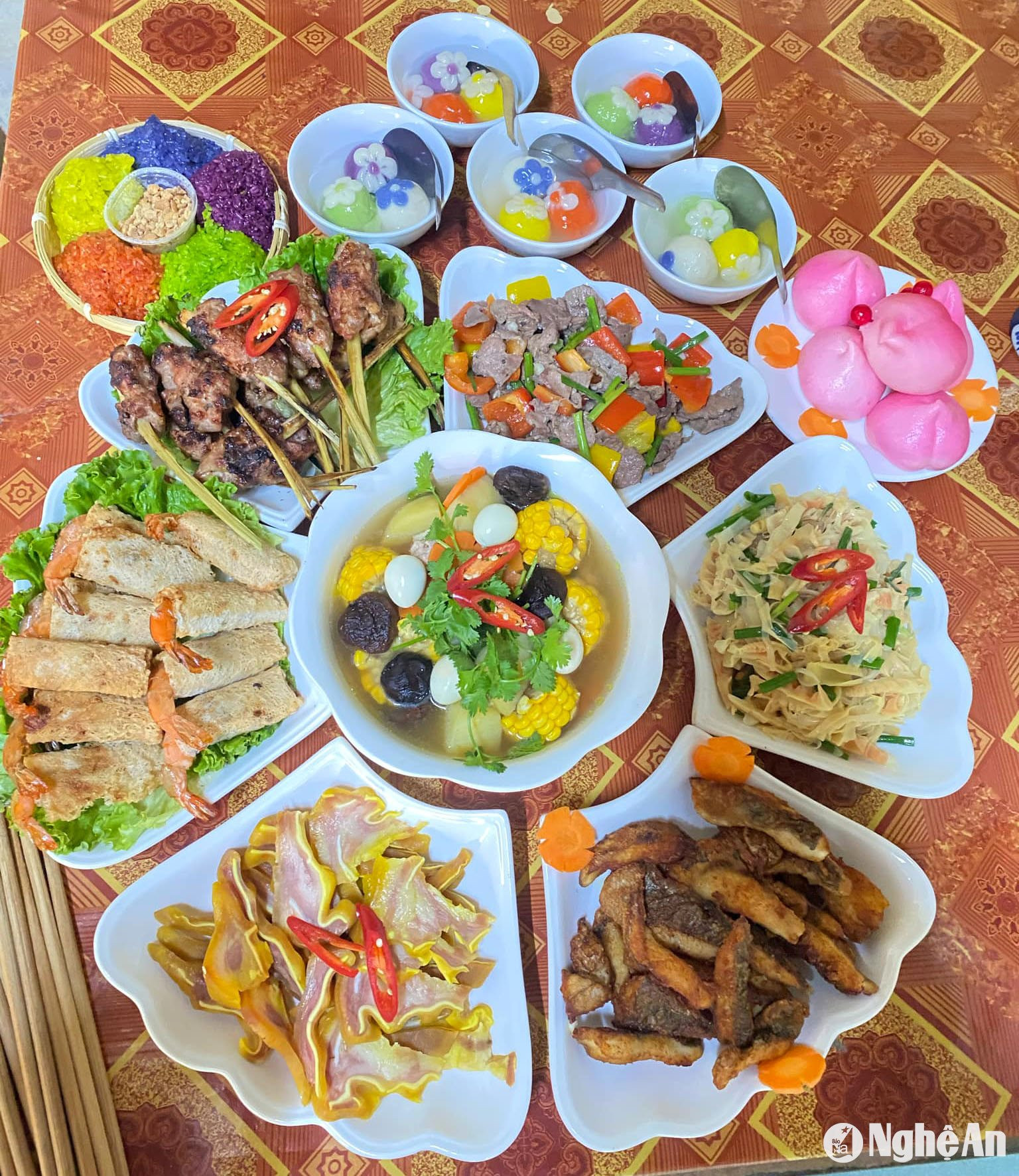
On the evening of the 14th, at the ancestral temple and the branch temples, there is a ceremony. On the 15th, to celebrate the Full Moon festival, each family must prepare at least two or more trays of offerings, including one for the ancestral temple and one for the ancestors. Some families even prepare 3-4 trays of offerings. The offering for the ancestral temple is a chicken sticky rice dish with all kinds of chickens such as lying chicken, standing chicken, flying chicken... very unique.
After the ceremony, depending on each branch, they can organize a meal at the church or disperse to each house. Most people disperse to each house, but the church is a place "reserved" for descendants who come from far away. After the ceremony, they can eat and socialize here. Arranging for descendants who come from far away to be welcomed and stay at the church is a unique feature of the family.
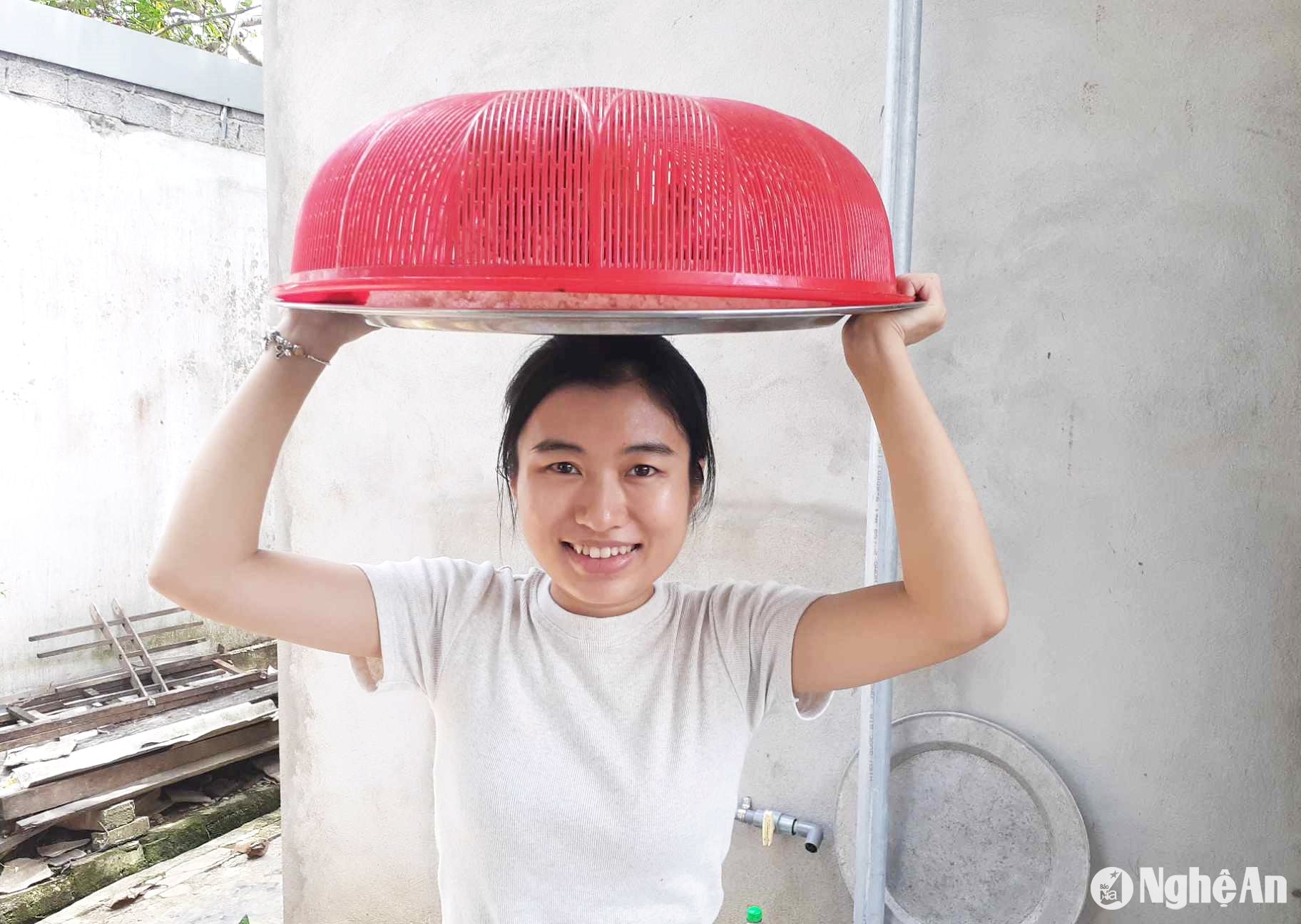
Not only in Yen Thanh, Nghi Loc, Thanh Chuong... but many other rural areas in Nghe An such as Nam Dan, Do Luong, Hung Nguyen, Dien Chau, Quynh Luu, Hoang Mai... also celebrate and eat the Full Moon Festival with a bustling, jubilant, and cozy atmosphere.
The full moon of the seventh lunar month is associated with the Vu Lan festival, expressing filial piety of children and grandchildren towards the birth and upbringing of their parents and grandparents, showing gratitude to their parents, remembering their ancestors and origins, which is a beautiful feature in traditional Vietnamese culture.
Returning to the roots, spreading traditional values
This year, the weather is quite favorable for people in the province to celebrate the Full Moon (shopping for offerings, visiting ancestors' graves, and making pilgrimages to churches). Before the Full Moon, many children working far away return to their hometowns. Preparations for the Full Moon in the localities are also quite bustling, especially shopping at rural markets, decorating family altars, and family temples. Some families and descendants gather to visit graves in large numbers like going to a festival.
The preparation of food and offerings for worship at the church is of concern to the clans. Mr. Nguyen Van Tuan in Nam Cat commune (Nam Dan) shared: "To celebrate the 15th of the 7th lunar month, the clan assigned me to organize a trip to the market to buy chicken, sticky rice, incense, flowers... to decorate the altar and offerings to worship the ancestors."
The full moon feast usually consists of sticky rice, boiled chicken or sticky rice, boiled pork, so many families have chosen to buy pork and chicken many days in advance. Some family groups also share pigs and slaughter pigs to celebrate the full moon. Many families have a rule that families organize their own ceremonies and prepare their own feasts. Each family prepares a feast and brings it to the church on the morning of the full moon to worship.
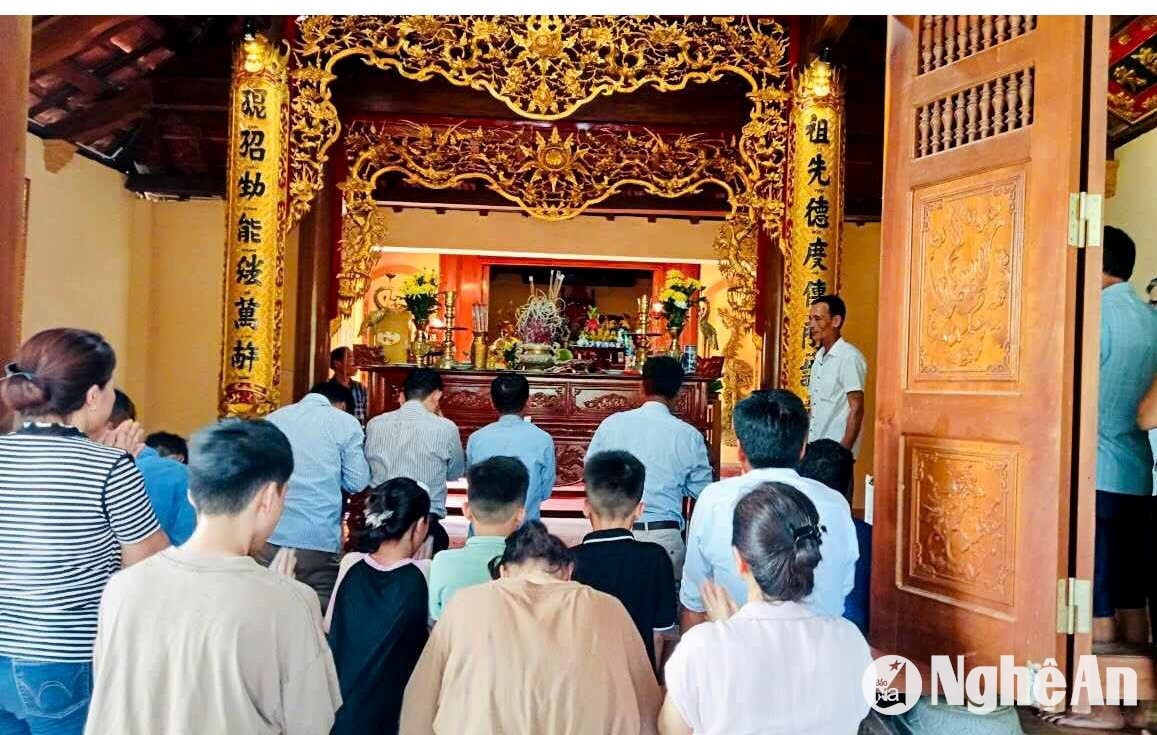
Mr. Nguyen Van Huu in Xuan Lam commune (Hung Nguyen) shared: "Every full moon of the seventh lunar month, after finishing preparing the food, my children and I return to the family temple in hamlet 9 of Xuan Lam commune, first to worship the full moon and burn incense for our ancestors, and then for the children to meet their relatives."
Full Moon worship at family temples is held solemnly with traditional rituals, such as offering incense, offering wine, reading funeral orations, etc. The ritual committee can wear plain clothes or long dresses and turbans, with neat attire, with a master of ceremonies, chanting and performing the ceremony with the accompaniment of drums and gongs.
Amidst the billowing incense smoke and the resounding drums, the ancestral worship ceremony at the family temple takes place solemnly and sacredly. The musical bands of large families often practice well to play on the full moon day and serve the ancestral worship ceremony.
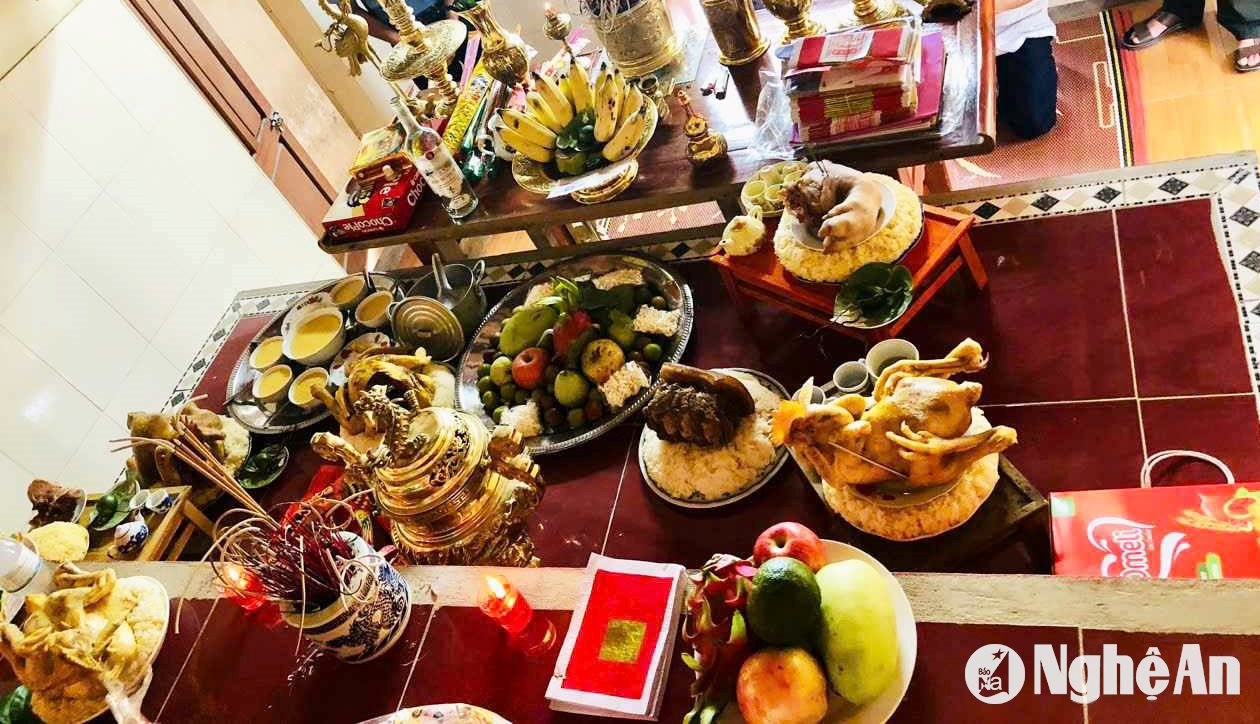
After the ancestral worship ceremony, the clans often report to their ancestors the achievements of their descendants. The education promotion committee of some clans organized commendations, presented certificates of merit, and presented gifts to encourage learning and talent to the clan's children.
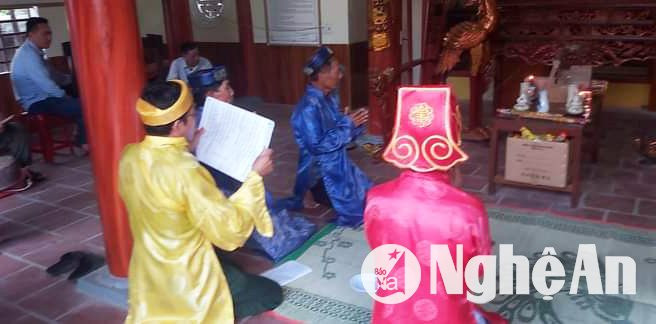
The 15th day of the 7th lunar month is not only an important holiday to pay homage to one's roots and ancestors, an occasion for people to gather, exchange information about bloodlines and relatives, ask about health and work, and strengthen brotherly ties, but it is also a space to honor the academic achievements, work, and contributions of descendants, and to encourage and support the learning of families and clans.
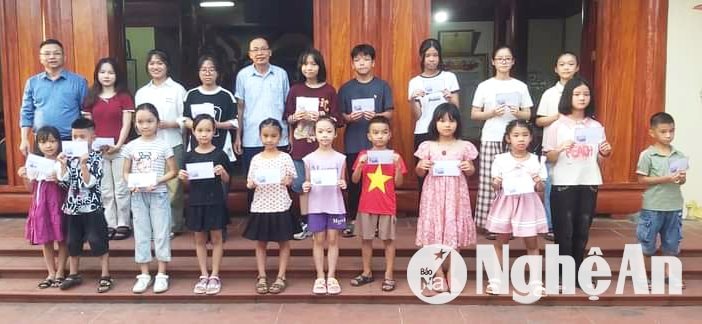
On this occasion, many people who are far from home, working and studying abroad, cannot return home to celebrate the full moon with their families, and feel homesick.
Le Anh Huy, from Long Thanh commune (Yen Thanh), who is working in Korea, shared: “I have been away from home for 4 years now. Every time I return on the 15th of the 7th lunar month, I feel a strange feeling. On normal days, I miss my home and my parents, but on the 15th day, that feeling of longing increases even more, especially when I see my friends and relatives returning home to celebrate the 15th day and posting pictures of the 15th day on social networks.”
The country and homeland are changing day by day, the organization of the Full Moon worship and the Full Moon feast of the people of Nghe An seems to be more vibrant, warmer and more practical.
Besides the innovation and changes in form to better suit the new lifestyle, the traditional rituals and humanistic spirit of the 15th day of the 7th lunar month are still preserved, promoted and spread in today's life.


